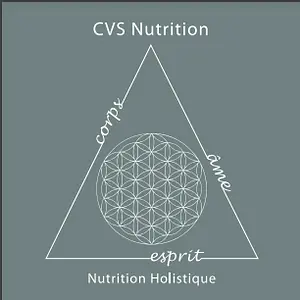- Quick navigation
- Home
- Open menu
- Page content
- Customer service
- Search
- Footer
Hypnosis in Geneva


Centre de Sophrologie et de Thérapie

Centre de Sophrologie et de Thérapie

Hypnosis in Geneva
Gallery (2)
- Monday8:00 to 19:00
- Tuesday8:00 to 19:00
- Wednesday8:00 to 19:00
- Thursday8:00 to 19:00
- Friday8:00 to 19:00
- SaturdayClosed
- SundayClosed
By appointment
- Monday8:00 to 19:00
- Tuesday8:00 to 19:00
- Wednesday8:00 to 19:00
- Thursday8:00 to 19:00
- Friday8:00 to 19:00
- SaturdayClosed
- SundayClosed
By appointment
- Monday
Centre de Sophrologie et de Thérapie – Contacts & Location
Description
Sophrology, psychotherapy (Person-Centered Approach according to Carl Rogers), EMDR, Ericksonian hypnosis : a range of techniques that enable everyone to rediscover a sense of well-being and to have as a partner a therapist who can bring help to a whole range of situations experienced as difficult.
Sophrology: a set of self-concentrating relaxation techniques that enable the following beneficial effects :
- at body level: rebalancing of all major organic functions, such as digestion, blood pressure, sleep, breathing ;
- at psychic level: reduced anxiety, better control of emotionality, improved concentration and therefore memory, an increase in efficiency in all areas.
At the same time, practical applications enable us to derive great benefit in situations that previously seemed difficult to master or outright blocked. The overall aim is to enable everyone to become autonomous in using the method in their everyday lives, to better manage their stress and thus gain access to the deeper harmony of their being.
Person-Centered Psychotherapy (PCP): this is a non-directive approach, in which the emphasis is on the relationship between the " client " and the therapist, with the dual aim of increasing the client's self-esteem and thus enabling greater openness to experience. According to Rogers, therapy is a process that guides the individual towards a greater awareness of his or her emotions and ability to express them, and thus towards greater independence and self-determination. The client will thus be able to evolve from :
- a rigid perception of himself and his surroundings towards more fluidity,
- a sense of insecurity or inferiority towards a more comfortable and positive positioning in relationships with others, and thus to a harmonious development of one's potentialities.
An atmosphere imbued with acceptance, congruence and empathy on the part of the therapist will encourage this process.
EMDR (Eye Movement Desensitization and Reprocessing): this is a technique for addressing disorders linked to situations experienced as traumatic and which may have led to inappropriate behavior in everyday life, sometimes even to post-traumatic stress disorder. Thanks to the neurological processes involved, this approach stimulates the brain to " digest " dysfunctional memories from the past. In this way, traumatic or difficult memories from the past lose their negative emotional charge, putting an end to suffering and harmful reactions (panic attacks, uncontrolled fears, anxiety, compensations and avoidance of all kinds, etc.). EMDR can also be used for phobias, depression and chronic pain. Ericksonian hypnosis: the aim of this technique is to enable the client to fix his attention on a single point, so that all other stimuli, particularly sensory, no longer reach him. One part of the brain can then experience the trance while the other comprehends and rationally analyzes what is happening. This state enables the client to experience in advance, through suggestion, the changes they desire, experiencing them as already realized.
In the context of hypnosis, we consider that the client already has within them the resources enabling them to make the change they desire, with hypnosis enabling them to discover and use them in everyday life.
Easy parking rue Voltaire, white boxes.
- Swiss-German
- English,French,Italian
- Categories
- HypnosisSophrologyPsychotherapy (General)Psychotherapy (Psychological psychotherapists)












